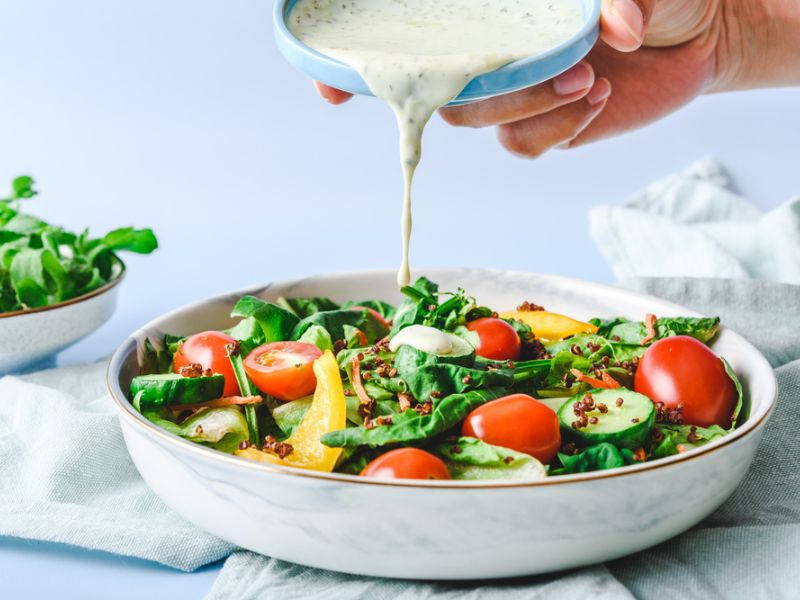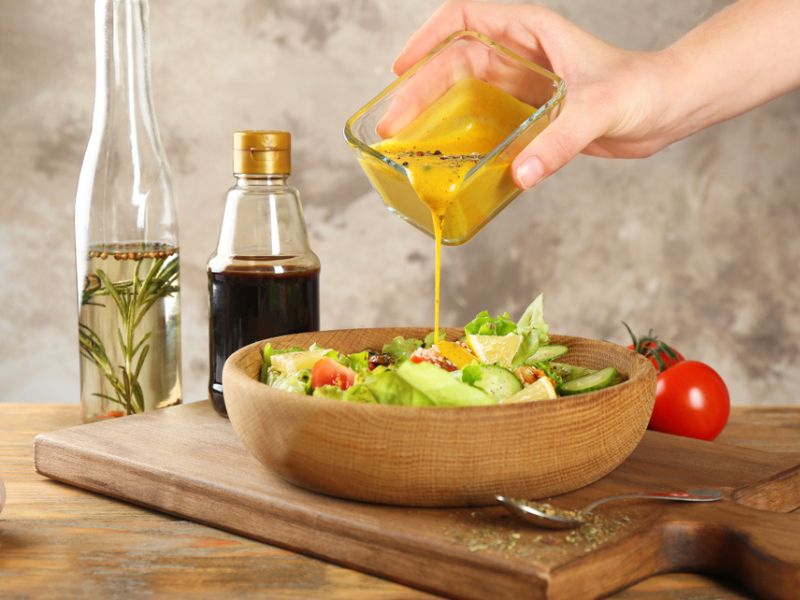A salad is one of the first foods people think of when choosing a healthy meal. Unless you’re going for a chicken, tuna, egg, or pasta salad, it’s always full of vegetables, so you get the nutrition you need, including fiber.
However, a salad without dressing can be a bit boring. Therefore, it’s essential to know whether dressing ingredients make your salad healthier. You can improve the nutritional content of your salad by choosing the proper dressing or detract from it by selecting the wrong sauce.

Image Credit: Shutterstock/Chris LayKK
Dressings That Are Creamy Aren’t
Necessarily Unhealthy
If you want to choose a salad dressing, you have to determine if you want one that is creamy or oily. Bonnie Taub-Dix, a registered dietician, said creamy sauces tend to be more saturated fat than oily. Taub-Dix said, “These fats are not as healthy for us [as unsaturated fats], and the American Heart Association recommends that saturated fats make up less than 6% of one’s diet.” For example, unsaturated fats in olive oil are healthier for your heart than saturated fats in vegetable oil.
Taub-Dix recommended reading the nutrition label on salad dressings because you don’t want to look at saturated fat, sugar, sodium, and calories if you’re trying to lose weight. Dietitians also recommend looking at the ingredients list and avoiding five specific ingredients with little nutritional value.

Image Credit: Shutterstock/Africa Studio
Avoid These Five ingredients
- Palm Oil
- Sugar
- Salt
- Monosodium glutamate (MSG)
- Coconut Oil
Herbs are tasty and rich in antioxidants suitable for your heart. These ingredients from salad dressing will keep your greens from becoming sodium-loaded and calorie-laden. Taub-Dix recommends fresh herbs, such as garlic, basil, and thyme, if you want flavor enhancement.